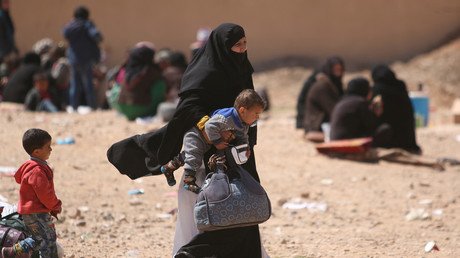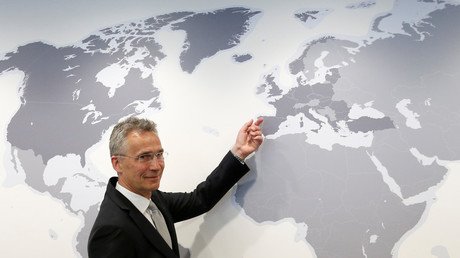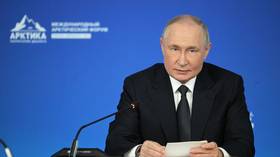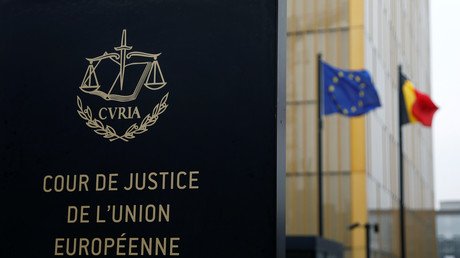US using ‘ethnic cleansing’ to set up compliant state in Syria – Vanessa Beeley to RT
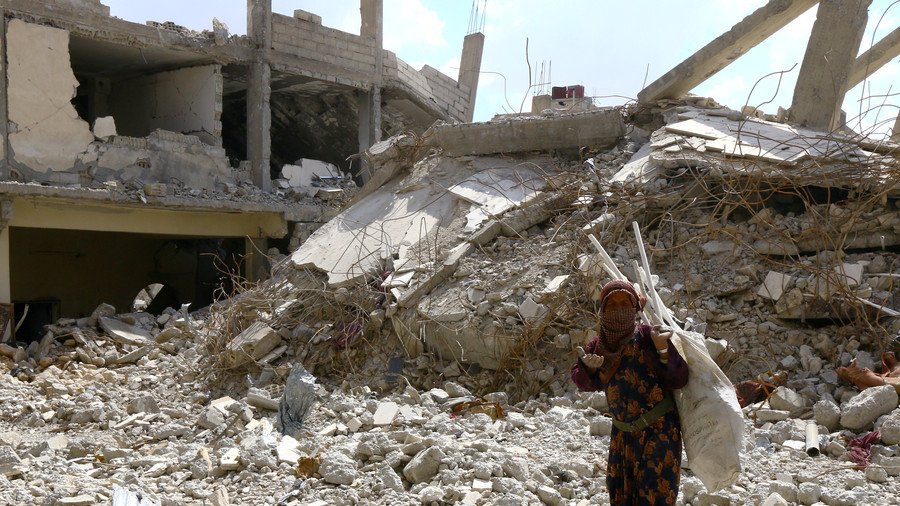
The US is trying to ethnically cleanse Syria in order to kill off Syrian nationalism and create an obedient state, journalist Vanessa Beeley told RT following a damning report on the US coalition’s military activities in Raqqa.
Beeley, an independent journalist who has covered the war in Syria extensively, told RT that the US, UK and French coalition is using proxy forces to cleanse certain areas of land in the war-torn country in an effort “to replace them with a proxy that will essentially create a US controlled state.”
She was responding to a new Amnesty International report that strongly criticizes the actions of the US-led coalition in its campaign to liberate the previously Islamic State (IS, ISIS/ISIL)-controlled city of Raqqa.
The Amnesty report accused the coalition and its Kurdish-led Syrian Democratic Force (SDF) proxies of creating “a level of destruction comparable to anything we’ve seen in decades of covering the impact of wars,” and it says that the coalition’s claims that the bombings were “precise” and caused few civilian casualties do not stand up to scrutiny.
Beeley said that the Amnesty report put “meat on the bones” of previous analysis from on-the-ground journalists and some Russian analysts and commentators. She said that despite the US-led campaign ostensibly being about ridding the area of IS terrorists, it was the terrorists “who were evacuated as priority over the civilians.”
“Civilian property and infrastructure, essential infrastructure like water taps, like water supply units that were keeping civilians alive during the campaign were also being targeted,” she said, adding that it was the SDF forces designating the targets for the US coalition.
“So there’s a degree of collusion here between the US coalition and its proxies forces on the ground,” she said.
Beeley also criticized the reluctance of the British government, in particular, to admit to causing civilian deaths during its military campaign. The UK Ministry of Defense, she said, “did not even admit one civilian death as a result of their “precision” bombing — and then they only reluctantly admitted that they believe one civilian was killed by one of their drone strikes.”
Comparing the American-led military campaign in Raqqa to the Russian and Syrian-led military campaign to liberate east Aleppo, Beeley said that there were different standards set and attempts were made to protect Aleppo civilians.
“What we saw there were the provision of humanitarian corridors for civilians to be able to leave under the cover of the Syrian Arab Army and with the help of the Russian reconciliation teams negotiating with the terrorist and militant extremist factions to allow civilians to leave,” Beeley said. “What we’ve seen in Raqqa is civilians paying smugglers to try and leave during the military campaign, having to cross minefields, being unable to afford the cost of those smuggling groups.”
Beeley also said that Syrian civilians were being forced to return to buildings and areas of Raqqa that had not yet been cleared of improvised explosive devices (IEDs), booby traps and mines left by IS militants.
In contrast, the journalist said that Russian forces “cleared thousands of hectares of those IEDs and booby traps” following their campaigns to liberate Aleppo and Ghouta from IS.
“What we’re seeing here is a disgusting despicable disregard for human life both during the military campaign and even more importantly after the military campaign by the US coalition,” Beeley said.
Watch Vanessa Beeley's full interview with RT below:
‘Yemen killings may be even bigger’
In a separate interview, Joshua Landis, the director of the Center for Middle-East studies at the University of Oklahoma, told RT that the Amnesty report made it clear that there were "massive violations of human rights." An investigation was unlikely given that the US, Britain and France sit on the UN Security Council, he said.
Landis said he believed the US did make efforts to avoid killing civilians, but that, ultimately, the US-led coalition was "in a hurry."
"The UN asked them [US coalition] multiple times to give breaks so civilians could get out, but they didn't want to negotiate with IS, they said they were gonna kill them on the battlefield. They didn't want them as prisoners in another Guantanamo and this led to a situation where the US was eager to finish it off, did not want to allow a break, did not want UN workers to go into Raqqa because they were going to see the devastation,” he said.
Landis compared the destruction to that caused by the US-supported, Saudi-led coalition in Yemen: "What's taking place in Yemen may be even bigger, but we don't even know because reporters aren't being allowed in there – but an entire population is being starved."
"Half a million Yemenis have gotten cholera and there isn't the proper medicine to fix them and heal them and this is a terrible, devastating war crime because it's voluntary. It doesn't have to happen. People don't have to be starved. There's a blockade going on," he said.
"We know that US special forces are helping the Saudis now in Yemen. Is the killing in Yemen more clean than the killing in Syria? It's hard to believe it is - and we'll find out the ultimate body count, I guess in the end," Landis added.
Like this story? Share it with a friend!
